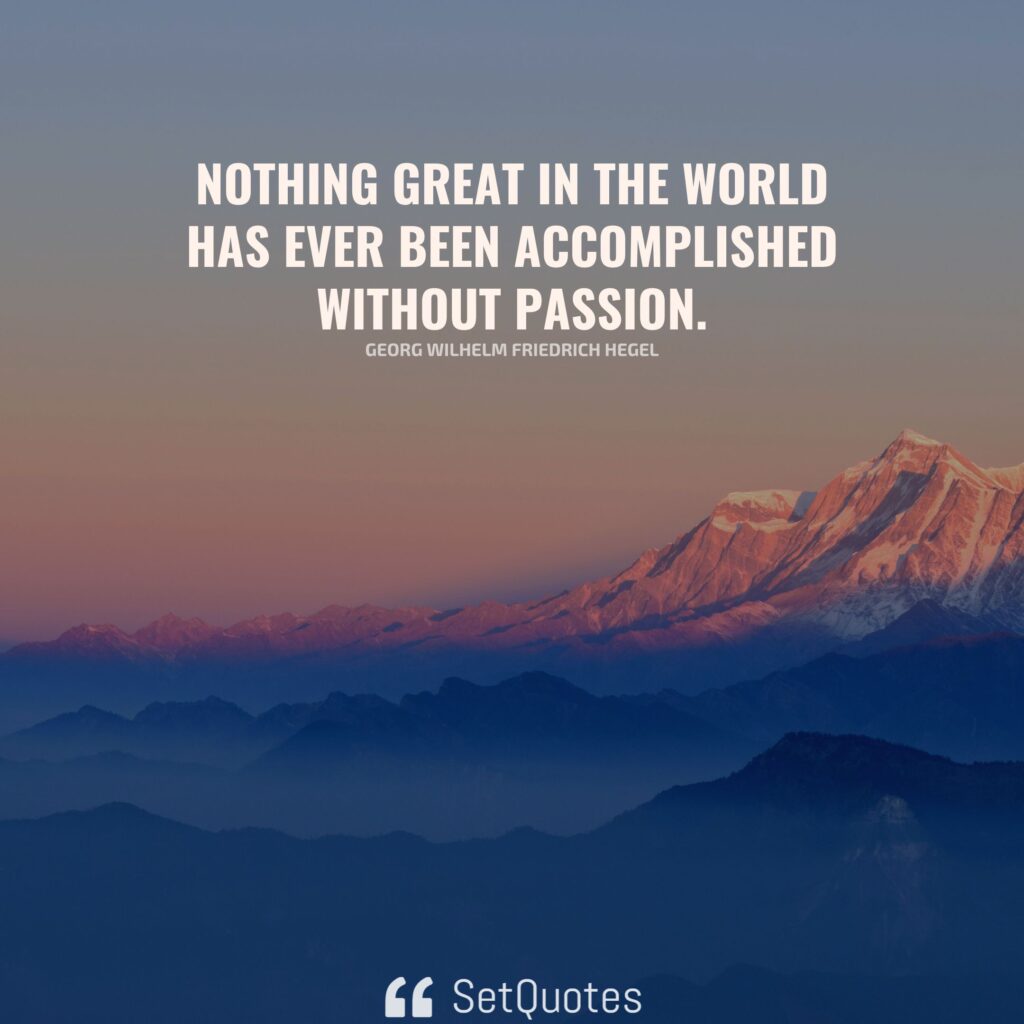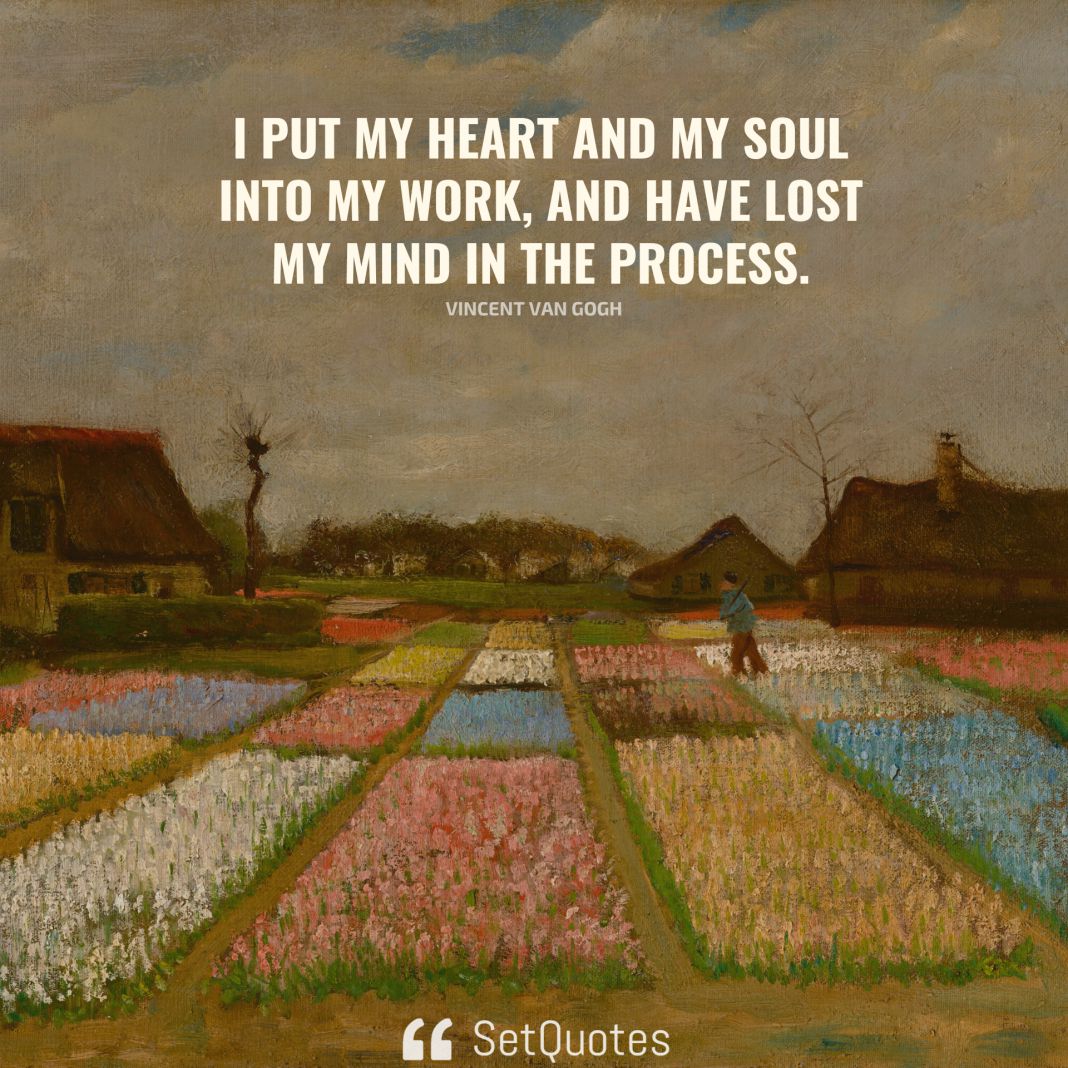I put my heart and my soul into my work, and have lost my mind in the process.
– Vincent Van Gogh
Brushstrokes of Passion: Unlocking the Meaning Behind Vincent Van Gogh’s Quote
Vincent Van Gogh, a Dutch post-impressionist painter, is widely regarded as one of the most significant figures in Western art history. His innovative and emotive style has left an indelible mark on the artistic world, influencing generations of artists.
Despite his relatively short career spanned only about a decade, Van Gogh created a vast body of work, including over 2,000 paintings, drawings, and sketches. His paintings are known for their vibrant colors, bold brushstrokes, and emotional intensity.
Did you know that Vincent van Gogh, one of the most celebrated artists in history, had a turbulent personal life? Despite his incredible talent, he struggled with mental health issues, poverty, and complex family relationships.
Have you seen some of his most famous paintings, like the enchanting “Starry Night,” the vibrant “Sunflowers,” and the cozy “The Bedroom”? They are truly breathtaking!
Van Gogh’s words reflect his unwavering dedication to his craft. He was deeply committed to painting throughout his life, even at the expense of other areas of his life. His choice of words, such as “heart” and “soul,” suggests a profound emotional investment in his work.
Van Gogh utilized his art as a medium to express his deepest feelings and thoughts, aiming to communicate his exceptional viewpoint of the world through his paintings.
The last part of this quote carries significant emotional weight, especially when we consider Van Gogh’s history of mental health struggles. He speaks of losing his sanity in the process, which is particularly tragic.

I remained too much inside my head and ended up losing my mind.
– Edgar Allan Poe
During these challenging times, art served as both a therapeutic outlet and a source of inner turmoil for Vincent Van Gogh.
Van Gogh’s emotional state had a significant impact on his artwork. He created some of his most famous pieces during periods of intense emotional turmoil. This reflects the connection between his mental state and his artistic expression.
The Paradox of Artistic Passion
Van Gogh’s quote conveys a profound emotional bond with his artwork, suggesting that his creations go beyond technical mastery and are infused with his personal feelings and experiences.
The second part of the quote is more metaphorical. Van Gogh expresses that he has “lost his mind” in the process of creating. This could be interpreted in different ways. One possible interpretation is that his total dedication to his work has caused him to experience a decline in his mental well-being.
Artists can become so engrossed in their creative process that they lose awareness of the outside world. This state of flow or immersion is a common experience for creators. Some argue that this is due to the intense concentration required during the creative process, which can temporarily disconnect artists from conventional or rational thinking.

The only way to do great work is to love what you do.
– Steve Jobs
In their quotes, Vincent Van Gogh and Steve Jobs illustrate the importance of putting your heart and soul into your work. They saw the value in investing deeply in what you do and creating something truly meaningful.
Van Gogh’s and Jobs’ quotes convey a deep emotional attachment to their work. They both recognize that creating exceptional or “great” work goes beyond technical skill. It requires a genuine passion and love for the work itself. Van Gogh’s quote suggests this emotional connection to his art, while Jobs’ quote emphasizes the importance of being passionate about your work.
Leading Apple through different challenges and triumphs was not an easy feat for Steve Jobs, but it shows that striving for greatness often means dealing with both the good and bad that comes with being dedicated to your craft.
Attaining excellence in any pursuit necessitates a certain degree of commitment, enthusiasm, and personal involvement that surpasses mere technical proficiency.
Both Van Gogh and Jobs have left a lasting impact on their respective fields. Their famous quotes beautifully capture the essence of pursuing excellence by genuinely loving what you do.

Nothing great in the world has ever been accomplished without passion.
– Georg Wilhelm Friedrich Hegel
Final Thoughts: Your Turn to Share!
Vincent Van Gogh’s quote captures the essence of artistic passion and the sacrifices that often come with pursuing one’s calling. This speaks to the universal theme of putting one’s heart and soul into one’s work, a sentiment that resonates not only with artists but also with anyone dedicated to their craft.
Vincent van Gogh’s life was characterized by an unwavering dedication to his art and a deep emotional intensity. It’s a poignant reminder that achieving greatness often means navigating through the depths of one’s emotions.
I’d love to know what you think about Vincent Van Gogh’s quote and how it relates to your own experiences. Have you ever found yourself completely absorbed in your passion, losing track of time and the world around you?
Or perhaps you’ve faced challenges in balancing your dedication to your work with other aspects of life. Share your insights, stories, or reflections in the comments below.

